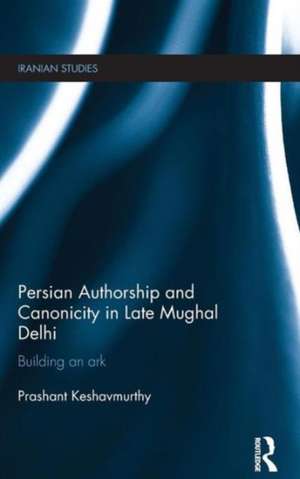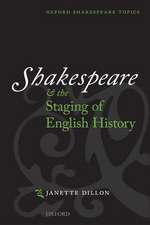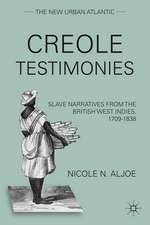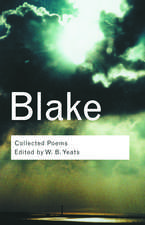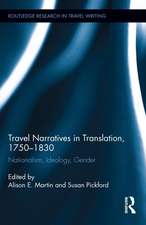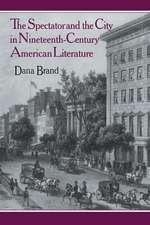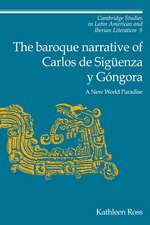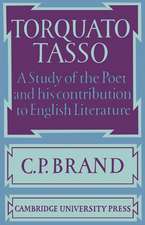Persian Authorship and Canonicity in Late Mughal Delhi: Building an Ark: Iranian Studies
Autor Prashant Keshavmurthyen Limba Engleză Hardback – feb 2016
Persian Authorship and Canonicity in Late Mughal Delhi situates the diverse textual projects of ‘Abd al-Qādir “Bīdil” and his students within the context of politically threatened but poetically prestigious Delhi, exploring the writers’ use of the Perso-Arabic and Hindavi literary canons to fashion their authorship. Breaking with the tendency to categorize and characterize Persian literature according to the dynasty in power, this book argues for the indirectness and complexity of the relations between poetics and politics. Among its original contributions is an interpretation of Bīdil’s Sufi adaptation of a Braj-Avadhi tale of utopian Hindu kingship, a novel hypothesis on the historicism of Sirāj al-Din ‘Alī Khān “Ārzū”s oeuvre and a study of how Bindrāban Dās “Khvushgū" entwined the contrasting models of authorship in Bīdil and Ārzū to formulate his voice as a Sufi historian of the Persian poetic tradition.
The first book-length work in English on ‘Abd al-Qādir “Bīdil” and his circle of Persian literati, this is a valuable resource for students and scholars of both South Asian and Iranian studies, as well as Persian literature and Sufism.
| Toate formatele și edițiile | Preț | Express |
|---|---|---|
| Paperback (1) | 389.38 lei 6-8 săpt. | |
| Taylor & Francis – 12 dec 2019 | 389.38 lei 6-8 săpt. | |
| Hardback (1) | 1054.58 lei 6-8 săpt. | |
| Taylor & Francis – feb 2016 | 1054.58 lei 6-8 săpt. |
Din seria Iranian Studies
-
 Preț: 154.26 lei
Preț: 154.26 lei - 18%
 Preț: 1068.18 lei
Preț: 1068.18 lei - 18%
 Preț: 997.90 lei
Preț: 997.90 lei - 18%
 Preț: 1108.37 lei
Preț: 1108.37 lei - 28%
 Preț: 823.63 lei
Preț: 823.63 lei -
 Preț: 440.77 lei
Preț: 440.77 lei - 28%
 Preț: 823.99 lei
Preț: 823.99 lei -
 Preț: 389.38 lei
Preț: 389.38 lei - 18%
 Preț: 1110.77 lei
Preț: 1110.77 lei -
 Preț: 478.86 lei
Preț: 478.86 lei - 18%
 Preț: 1055.51 lei
Preț: 1055.51 lei - 14%
 Preț: 299.52 lei
Preț: 299.52 lei -
 Preț: 442.88 lei
Preț: 442.88 lei - 18%
 Preț: 1059.84 lei
Preț: 1059.84 lei - 26%
 Preț: 848.57 lei
Preț: 848.57 lei - 30%
 Preț: 770.09 lei
Preț: 770.09 lei -
 Preț: 341.57 lei
Preț: 341.57 lei - 18%
 Preț: 1163.51 lei
Preț: 1163.51 lei - 26%
 Preț: 652.04 lei
Preț: 652.04 lei -
 Preț: 437.13 lei
Preț: 437.13 lei -
 Preț: 436.14 lei
Preț: 436.14 lei - 18%
 Preț: 1168.76 lei
Preț: 1168.76 lei - 25%
 Preț: 570.60 lei
Preț: 570.60 lei -
 Preț: 430.94 lei
Preț: 430.94 lei - 18%
 Preț: 1114.70 lei
Preț: 1114.70 lei - 26%
 Preț: 822.01 lei
Preț: 822.01 lei - 18%
 Preț: 1000.27 lei
Preț: 1000.27 lei - 18%
 Preț: 1060.52 lei
Preț: 1060.52 lei -
 Preț: 409.31 lei
Preț: 409.31 lei - 18%
 Preț: 1054.71 lei
Preț: 1054.71 lei - 25%
 Preț: 328.20 lei
Preț: 328.20 lei - 18%
 Preț: 1055.51 lei
Preț: 1055.51 lei - 18%
 Preț: 1002.63 lei
Preț: 1002.63 lei - 31%
 Preț: 683.99 lei
Preț: 683.99 lei - 18%
 Preț: 1061.06 lei
Preț: 1061.06 lei - 18%
 Preț: 1118.65 lei
Preț: 1118.65 lei - 18%
 Preț: 1054.75 lei
Preț: 1054.75 lei - 18%
 Preț: 1056.95 lei
Preț: 1056.95 lei
Preț: 1054.58 lei
Preț vechi: 1286.07 lei
-18% Nou
Puncte Express: 1582
Preț estimativ în valută:
201.82€ • 219.14$ • 169.53£
201.82€ • 219.14$ • 169.53£
Carte tipărită la comandă
Livrare economică 22 aprilie-06 mai
Preluare comenzi: 021 569.72.76
Specificații
ISBN-13: 9781138185982
ISBN-10: 1138185981
Pagini: 190
Dimensiuni: 156 x 234 x 13 mm
Greutate: 0.45 kg
Ediția:1
Editura: Taylor & Francis
Colecția Routledge
Seria Iranian Studies
Locul publicării:Oxford, United Kingdom
ISBN-10: 1138185981
Pagini: 190
Dimensiuni: 156 x 234 x 13 mm
Greutate: 0.45 kg
Ediția:1
Editura: Taylor & Francis
Colecția Routledge
Seria Iranian Studies
Locul publicării:Oxford, United Kingdom
Public țintă
Postgraduate and UndergraduateCuprins
Introduction: Political Frailty and Poetic Power in Late Mughal Delhi 1 Bidil’s Portrait: Ekphrasis as Ascetic Self-Transformation 2 Bidil’s Tarji-band: the Author’s Kenotic Chorus 3 A Hindu Allegory of the Islamic Philosopher King: the Tale of Madan and Kamdi in Bidil’s Irfan 4 The Local Universality of Poetic Pleasure: Siraj al-Din ‘Ali-Khan “Arzu” and the Speaking Subject 5 Khvushgu’s Dream of Hafiz: Building an Ark with Arzu and Bidil
Notă biografică
Prashant Keshavmurthy is Assistant Professor of Persian-Iranian Studies in the Institute of Islamic Studies, McGill University. His research interests include late Mughal political discourses, Safavid-Mughal commentarial practices, Persian-Urdu poetics, Persian translations of Indic language works and Islamic autobiographical discourses.
Descriere
Persian Authorship and Canonicity in Late Mughal Delhi situates the diverse textual projects of ‘Abd al-Qādir “Bīdil” and his students within the context of politically threatened but poetically prestigious Delhi, exploring the writers’ use of the Perso-Arabic and Hindavi literary canons to fashion their authorship. Breaking with the tendency to categorize and characterize Persian literature according to the dynasty in power, this book argues for the indirectness and complexity of the relations between poetics and politics. Among its original contributions is an interpretation of Bīdil’s Sufi adaptation of a Braj-Avadhi tale of utopian Hindu kingship, a novel hypothesis on the historicism of Sirāj al-Din ‘Alī Khān “Ārzū”s oeuvre and a study of how Bindrāban Dās “Khvushgū" entwined the contrasting models of authorship in Bīdil and Ārzū to formulate his voice as a Sufi historian of the Persian poetic tradition.
